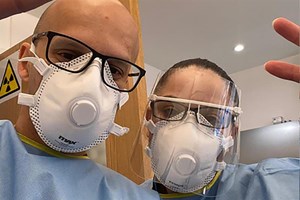New evidence of endodontic effects of smoking
Published: 27/09/2018
Researchers have found that smoking weakens the ability for pulp in teeth to fight illness and disease.
The team at the Case Western Reserve University School of Dental Medicine found smokers have fewer defence mechanisms on the inside of their teeth.
'That might explain why smokers have poorer endodontic outcomes and delayed healing than non-smokers,' said Anita Aminoshariae, associate professor of endodontics and director of predoctoral endodontics.
'Imagine TNF-α and hBD-2 are among the soldiers in a last line of defense fortifying a castle. Smoking kills these soldiers before they even have a chance at mounting a solid defence.'
The results of the study were published in the Journal of Endodontics.
Aminoshariae said that, previously, there was little research into the endodontic effects of smoking – the inside of teeth.
Smokers had worse outcomes than non smokers, with greater chances of developing gum disease and nearly two times more likely to require a root canal.
This new preliminary research set out to explain the possible contributing factors.
Thirty-two smokers and 37 non smokers with endodontic pulpitis were included in the study.
'We began with a look at the dental pulp of smokers compared with non smokers,' she said. 'We hypothesised that the natural defenses would be reduced in smokers; we didn't expect them to have them completely depleted.'
Author: Julie Bissett









.jpg?width=150&height=100&scale=canvas)



